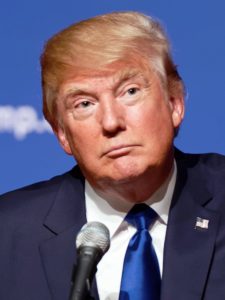EU Leaders Pledge Unity Following Trump Criticism
At a working lunch in the Maltese capital, Valletta, EU leaders announced unity in response to U.S. President Trump’s recent anti-EU rhetoric. On February 3, leaders from the EU met to discuss foreign policy, the future of the EU, and, specifically, the United States’ future in the Union. Central to their discussion was President Trump’s recent criticism of the organization.

The wave of tension comes as a result of Trump’s comments in mid-January about NATO, the North Atlantic Treaty Organization, and its European member states. He accused NATO of being obsolete, and accused its members as having “failed to pay their fair share to the alliance’s budget.” A bold step just a few days before his official inauguration, Trump’s comments were met with immediate opposition. The German Chancellor, Angela Merkel, responded to his words with fervor, claiming, “We Europeans have our destiny in our own hands.”
More recently, just a couple of weeks into his presidency, Trump has taken globally controversial steps, such as the signing of an executive order banning the entrance of travelers from seven Muslim countries into the United States, that have had significant impacts on the international political stage, which has reacted by advocating its opposition to Trump’s actions.
At the informal summit in Malta, many of the world leaders in attendance had disapproving words regarding the newly-elected U.S. president.
French President Francois Hollande described President Trump's statements directed to the future and stability of the EU and NATO as "unacceptable,” adding that "there are threats [and] there are challenges. What is at stake is the very future of the European Union." Hollande also went on to warn that there would be no future for Europe’s relations with the U.S. “if this future isn’t defined in common,” indicating the strained relationship between the European states and the United States under the Trump administration.
Meanwhile, German Chancellor Angela Merkel reiterated her comments made earlier in the year that “Europe has its destiny in its own hands,” and that it must unite if it is to remain strong under external pressures. She called on the EU to press ahead with its own plans no matter what the United States says, claiming that “the stronger we state clearly how we define our role in the world, the better we can take care with our transatlantic relations."
Others, including Austrian Chancellor Christian Kern, criticized some of the more recent acts executed by President Trump. Regarding the Muslim ban, Chancellor Kern noted that such a decision was "highly problematic," and a defining factor in relations between the EU and the United States.
The new U.S. administration has rattled the global political scope, and it seems that many of the European states have so far been largely dissatisfied with the comments and actions of President Trump. Speaking after the meeting, European Council President Donald Tusk said that the U.S. administration is a “challenge” for the EU that can become a “threat” if the bloc loses its unity and focus, insisting that a strong transatlantic relationship has always been and should continue to be “a key pillar of the free world.” Whether the tensions deflate or not remains to be seen. It would arguably be in the global public’s best interests if the two actors were to settle on c
ommon grounds.
